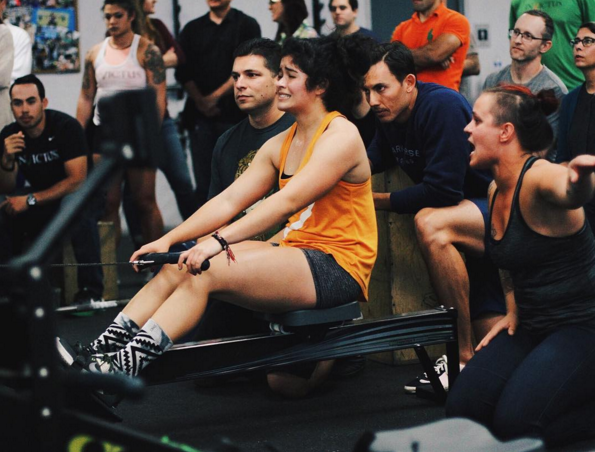
Cues for Auditory Learners
Written by Melissa Hurley
The auditory learner, relies on the spoken word and comprehends information by hearing and reiterating out loud. An athlete who is a auditory learner is focused on sounds and rhythms to learn movement patterns along with verbal description of the movement.
It would be easy to assume that auditory learners are the easiest to coach due to the way an athlete and a coach can talk. However, auditory learners are easily distracted, they find it hard to distinguish between good instruction, poor instruction, distracting noises and music (Baldwin & Eckmann, 2007). Coaches must be deliberate and concise when working with auditory learners. You must create feedback loops between you and your clients/members to ensure clear understanding. Auditory learners learn best through the use of language including lectures, group discussions and audiotapes.
Try reaching your auditory learners with these coaching cues:
- Hear
- Sound
- Repeat (encourage self talk)
Example Cue: “Hear the sound of the straps snap as you whip the rings back and forward.”
Try these tools to pass on information to your visual learning clients/members:
- Repeat, repeat
- Discussion/verbal engagement
- Music
- Podcasts
- Lectures/Seminars/Guest speaker
- Encourage
- Listening/Listen and respond
- Self-talk
- Narrative video
Get creative with auditory learners. Send them podcasts to help teach them important lessons. Take time at the white board to really verbalize your expectations. Keep the music at a tempo you desire your clients/members to be moving. Don’t be afraid to repeat yourself and give different verbal corrections to help them understand, or even ask them to repeat back what you said.
References
Brunner, R. & Hill, D. (1992). Using learning styles in coaching. Journal of Health, Physical Education, Recreation and Coaching, 63(4), 26-28, 61.
Coker, C. A. (1995). Learning style and consistency across cognitive and motor settings. Perceptual Motor Skills, 81, 1023-1026.
Coker, C. A. (1996). Accommodating Students’ learning styles in physical education. Journal of Health, Physical Education, Recreation and Dance, 67(9), 66-68.
Dunn, R., Beaudry, J. S., & Klavis, A. (1989). Survey of research on learning style. Educational Leadership, 46(6), 50-58.
Mind Tools (2002). How your learning style affects your use of mnemonics. http://www.mindtools.com/mnemlsty.html
hey good one
Auditory learners are those who learn best by listening. They are often experts in auditory learning, and can pick up new skills very quickly. The most important thing for auditory learners is to find the right type of auditory feedback. I will get nursing assignment help now. For example, visual learners may be able to visualize a map or diagram, which can help them remember. For auditory learners, a visual representation would not be as effective.
If you uses the Bing operating system and your searches are saved in browsing histories and you want to secure http://deletebinghistory.com your private searches hiding from another any person then this is so beneficial for you.